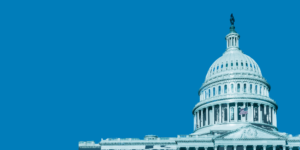May 13, 2020
Science policy carries on
Posted by Caroline Gleason
 Science policy is still happening at AGU, albeit from our kitchen tables. From advocating for stimulus funding for science to monitoring visa restrictions for international students and researchers, AGU has continued to speak up for our scientific community during this pandemic.
Science policy is still happening at AGU, albeit from our kitchen tables. From advocating for stimulus funding for science to monitoring visa restrictions for international students and researchers, AGU has continued to speak up for our scientific community during this pandemic.
However, not all recent science policy developments have been related to COVID-19. Here, we highlight three non-COVID policy issues that AGU’s Public Affairs team is acting on from home.
Open access
Open Access (OA) is a set of principles and practices to make peer-reviewed literature available online without the financial, legal or technical barriers of the traditional model of paid subscriptions. There exist many approaches to widely adopting OA (e.g., the tiered access approach) and AGU has implemented an array of solutions to make our journals widely available.
The Latest:
In December, word spread of a potential executive order mandating immediate public access to scientific data and publications for U.S. federally funded grants. The Office of Science and Technology Policy (OSTP) at the White House issued a call for public comments on existing OA policies in February, the deadline for which had been extended to 6 May.
AGU’s Actions:
AGU joined with other publishers in asking OSTP to pause the process, allowing for necessary discussion with stakeholders to consider the impacts and potential consequences on scholarly societies that could result from the order.
AGU’s Letter on Open Access affirms our support of expanded access to the scholarly outputs that bolster the research enterprise broadly, and our position on data as a world heritage.
Secret science
In 2018, the Environmental Protection Agency (EPA) introduced a proposed rule titled “Strengthening Transparency in Regulatory Science.” Described by many as a solution in search of a problem, the rule would restrict agency decision-making to only consider research using data that are publicly available. This would effectively exclude any study based on data containing personal information (e.g. patient information) from consideration in crafting the kinds of policies where those studies are most relevant: policies affecting the health of the American people.
The 2018 rule sparked an overwhelming response from the scientific community, drawing nearly 600,000 comments over a 90-day public comment period.
The Latest:
In March, a supplement to the proposed 2018 rule was announced. The supplemental notice made several changes, including expanding the scope of the rulemaking to apply to all significant science performed at EPA and giving lesser consideration to the use of research where data and models could not be made available for independent validation. EPA put in place a restricted 30-day comment period, which was later extended to 18 May following strong objections from the scientific community.
AGU’s Actions:
AGU submitted a request to extend the deadline for the public comment period and will submit our comments on the proposed rule in the next two weeks, to be posted here.
FCC’s spectrum decision
The electromagnetic spectrum is a shared resource, critical to services like GPS, weather monitoring, and aviation. Licensing and regulation of the spectrum falls under the purview of the Federal Communications Commission (FCC), which must consider the impacts any new license applications may have on existing stakeholders before issuing approvals. Ligado, a company interested in developing 5G services, has been seeking approval for use of a band of frequencies known as the L-band for years. Ligado (then called LightSquared) received approval for this request in 2010, but it was soon retracted by the FCC due to the significant impact Ligado’s activities would impose on critical operations that rely on L-band frequencies, such as NOAA’s GOES satellite and classified Department of Defense military equipment.
The Latest:
Since mid-April, there has been rapid movement by the FCC on the Ligado proposals. The commission approved Ligado’s application just two business days after announcing the docket item, a decision that went against concerns voiced by members of Congress, the Secretary of Defense and others including former FCC Commissioner Robert McDowell.
Chief among stakeholder concerns is that the terms of the FCC decision do not adequately protect adjacent band operations from harmful interference that would impact countless commercial and military activities, which was the reason for the 2010 retraction.
Chairman of the Senate Armed Services Committee Sen. Inhofe (R-OK) has voiced strong opposition to the FCC decision, releasing a letter to President Trump requesting he intervene in opposition to the Ligado decision. Rep. DeFazio (D-OR), chair of the House Transportation and Infrastructure Committee, submitted a similar letter to the FCC Commissioner. A hearing on the impact of the FCC decision on the Department of Defense was held by the Committee on 6 May.
AGU’s Actions:
AGU signed onto a joint industry letter sharing the concerns of the hydrometerological community regarding potential interference with NOAA’s GOES satellite and other essential operations..
To learn more about AGU’s policy priorities and the issues we are tracking, tune in to a webinar on AGU’s Four Policy Priorities on 14 May from 2-3pm ET. Register here.

